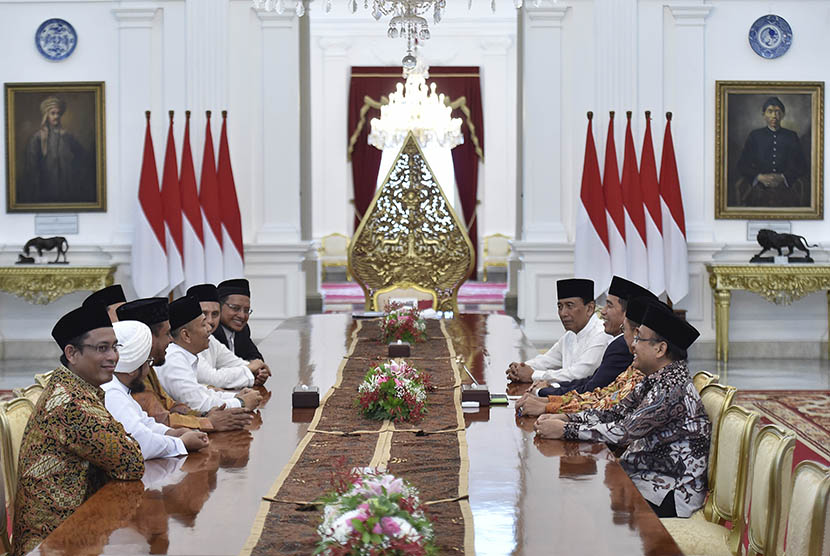REPUBLIKA.CO.ID, JAKARTA -- The National Movement to Safeguard the Indonesian Council of Ulemas Fatwa (GNPF MUI) questioned the government commitment on the result of the two parties meeting.
"During the meeting on Eid al-Fitr (June 25) at Presidential Palace, President Joko Widodo promised GNPF MUI there will be further discussion on the recent situation," GNPF MUI Advocacy Team leader Kapitra Ampera said to Republika.co.id on Friday.
Therefore, Kapitra wondered on the issuance of Government Regulation in Lieu of Law (Perppu) RI 2/2017 on Amandment of Law 17/2013 on Mass Organization, on Wednesday (July 12). The absence of dialogue with ulemas made the government seemed to hear aspiration from a group of people and generalized it as if it was the whole stakeholders aspirations.
“Come on, let's have a dialogue. The president said he wanted to have a dialogue, but why did Perppu come out anyway,” said Kapitra expressing his disappoinment.
Kapitra said the dialogue with leaders of the organizations became an important issue in the issuance of Perppu on Mass Organizations.
Dialogue would eliminate the impression that the government is being repressive. “Open the dialogue so that the barriers of can be unravelled. Do not be repressive, because with issuing the Perppu without dialogue, the impression is repressive,” said Kapitra.
According to him, after hearing the conviction of Basuki Tjahaja Purnama in blasphemy case and the result of Jakarta gubernatorial election, the people's tense has decline.
"The government should not trigger another uproar by issuing the Perppu on mass organizations without dialogue with all Islamic groups," he said.
Without dialogue, he added, the Perppu seemed to attack Muslims. In fact, Muslims fighters had played an important role in the independence of Indonesia. "Do not let Muslims lose their willingness to vote for it would become a history. Do not be like this. In fact, it will leave a stain in society, it will be a dark history," he said.
Beside the dialogue, Kapitra assessed the government is too hasty in publishing the Perppu. Because, he stated, there is no explanation of the critical situation that strengthens President Joko Widodo decision in issuing the Perppu.
The Perppu did not clearly explain definition of the precarious situation that it is meant. "Did the situation really critical as the year of 1998? The government needs to explain in details."


